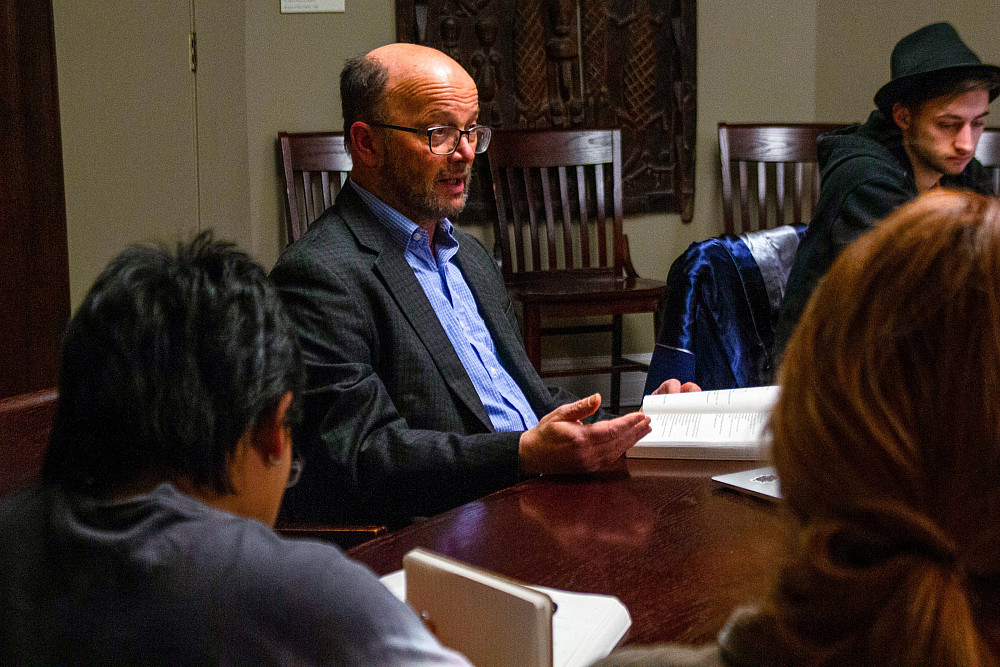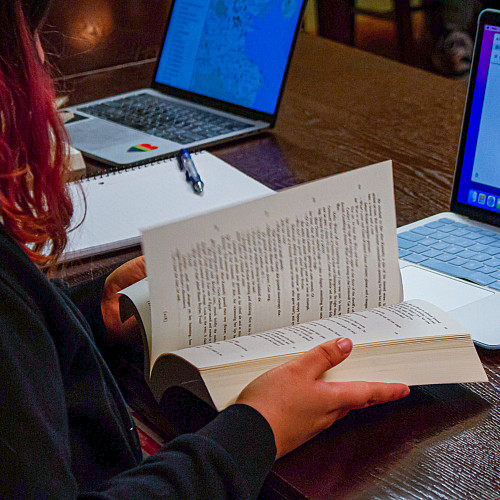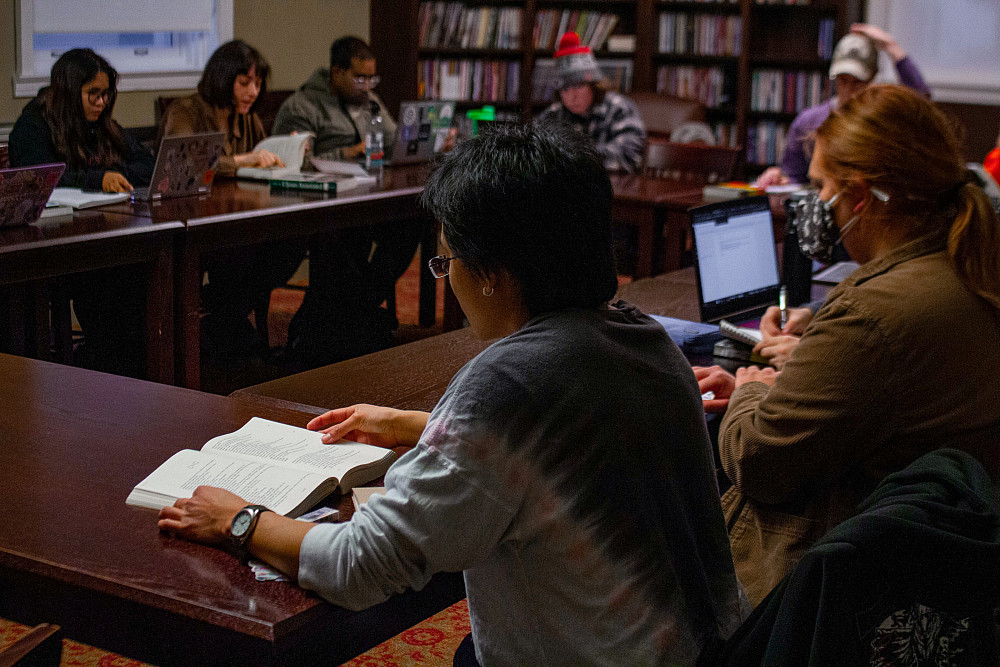Braving “Ulysses”
Bucket-list books like James Joyce’s Ulysses can be intimidating to read alone. English professor Shawn Gillen’s “Ulysses at 100” course provides an alternative — a book club structure that aims to improve student engagement and enjoyment.

Credit: Ray Broad’26
The early twentieth-century novel Ulysses by James Joyce recently celebrated the 100th anniversary of its publication in 1922. To honor that, Professor of English Shawn Gillen offered a half-credit course dedicated to reading the formidable novel. Because many readers find its stream-of-consciousness narrative, shifting points of view, and layers of allusion difficult to follow, the course is purely a discussion-based seminar, allowing students to spend time enjoying and appreciating the novel.
“I wanted students to be able to focus on the book and not worry about writing papers or exams,” Gillen says.
As an Irish-American, Gillen has been fascinated with Irish literature since high school and had the opportunity to work with Joyce scholar Dr. Chester Anderson in graduate school at the University of Minnesota. Dr. Anderson taught courses on both Joyce’s Portrait of the Artist as a Young Man and Ulysses.

When he offered the course for the 2023 spring semester, he only expected a small group around that size to register, but was surprised when 18 students enrolled. Gillen says that “the high enrollment in this class suggests that students still are interested in books that raise profound questions about life and they are curious to read books that are challenging to read.”
According to Gillen, the most rewarding way to read the novel is in the company of other people. Ulysses is packed with allusions to a variety of disciplines, including Greek and Roman literature, Shakespeare, Roman Catholic theology, philosophy, and Irish cultural history. Having students of disparate interests in the seminar enriches the experience for everyone and improves comprehension of Joyce’s artistry.
Biology major Rayven Ferber’23 was drawn to the course because of the novel’s reputation, and has enjoyed both the social aspect of the seminar structure and its approach to tackling challenging material.
“Challenging your brain to read something that is older can help you understand and learn in new ways and engage different parts of your brain that you’re probably not using in everyday life,” Rayven says.
Gillen similarly feels that literature like Ulysses can inform our everyday lives, and that Joyce himself thought of the novel as a guide for how to live in (what was for him) modern Ireland. “In many ways, the book’s a celebration of everyday life and how to be heroic in contemporary society,” he says.

Credit: Ray Broad’26
Because the seminar is only a half-credit, it won’t make or break a student’s career, but it can act as a motivator for people like Rayven who are curious about difficult novels with great reputations. Students find the course worthwhile because they genuinely want to be there and read Ulysses.
“There’s a lot of articles written about how students no longer are interested in the printed word,” Gillen says, “and they resist reading books or don’t want to read them. But you walk into that seminar and, I don’t think I’m exaggerating, people are really into it.”
Gillen would like to offer another course in the upcoming years to tackle Joyce’s subsequent novel Finnegan’s Wake and hopes that the course might be used as a template for discussing other great books such as Moby Dick or War and Peace in a fun and motivational setting.


